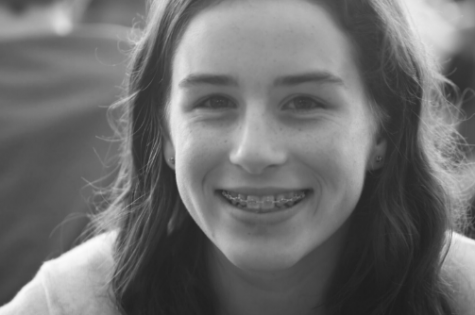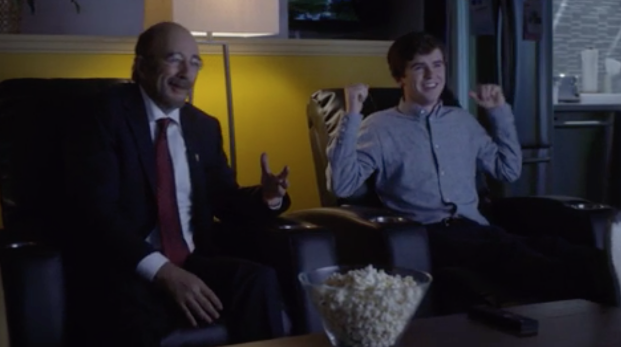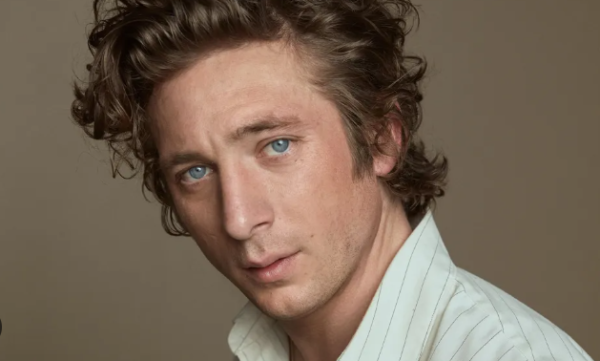Offbeat new television show offers window into autism
A new approach at a medical drama, the Good Doctor deals with a genius autistic surgical resident who finds his way through the medical field with the odds stacked against him.
The first time I ever heard about the Good Doctor was in an advertisement. Surprisingly, my initial reaction was to not to skip past it, which I normally do. The plot intrigued me: an autistic surgeon finding his way through a highly competitive surgical resident program. Unfortunately, after I did some research on the show, I discovered it was playing on neither Netflix nor Amazon Prime, which are the only ways I access television, so I promptly forgot the show.
A few months later, I heard my cousin, Tom, discussing the show. Tom has Aspergers syndrome, which falls under the autism spectrum, and he strongly recommended it. After I got home, I recorded the first 12 episodes on Direct TV. It was the first show I have ever waited and watched the shows as they aired on television, and here’s why…
___________________________________________________________
While I am not well-versed in the medical drama genre, having never watched ER and only a little of Grey’s Anatomy, I admit to binge watching when I discover a new show I like. That’s what happened here. I started the first episode, and I loved it. The main character, Dr. Shaun Murphy, played by Freddie Highmore, starts his day by combing his hair almost ritualistically, packing his clothes in a very organized fashion, stacking his Rubik’s Cubes, and doing other mannerisms that set you in the mindset for what’s to come.
The next scene cuts to Murphy at an airport; he has just accepted a new position at the hospital, and the whole atmosphere of the chaotic air terminal obviously unnerves him. Midway through the terminal, some construction workers make a mistake which leads to a glass panel shattering on top of a young boy. The boy begins bleeding from what looks to be lethal wound in his neck. Immediately, a nearby doctor steps forward to help and applies pressure to the boy’s wound. Murphy watches for a few seconds before matter-of-factly informing the other doctor, “you’re killing him.” He tells him he is applying pressure to the wrong area.
A helpful aspect of the show for me is that while Murphy is figuring something out, his thought process is shown in a detailed diagram to the side of the screen; instead of just hearing the doctor say a foreign medical term, I actually understand what’s happening to some degree.
(While in the operating room, Murphy figures out a solution to his problem. via GIPHY)
To save the child, Murphy needs some specific equipment from the airport. He first goes to the airport security guards to get a knife. Obviously, they are reluctant to give a random stranger a knife, so Murphy proceeds to just take the knife and run. The security guard soon tackles Murphy to the ground, but releases him once the boy’s mother steps in and explains the situation. Murphy saves the boy, for now, and he is taken to an ambulance to the San Jose hospital. Because of this, Murphy shows up to his first day of work late and riding in an ambulance with the hospital’s new patient.
(Murphy runs through the airport right before he gets shoved by the security guard. via GIPHY)
Meanwhile, the hospital board becomes divided when they learn Murphy has been initiated into the program. Chief of Surgery Marcus Andrews, played by Hill Harper, adamantly opposes Murphy’s hiring, because of his own prejudices about Murphy’s so called “issues.” On the other hand, Hospital President Aaron Glassman, played by Richard Schniff, strongly pushes for Murphy, because he has known Murphy for years and understands his abilities which are heightened with his Savant Syndrome. It doesn’t help Murphy’s cause that while they are discussing the topic, he has still not arrived.
That’s it for the plot synopsis, to find out what happens next, you will have to tune in.
Personally, one of my favorite things about the show is Murphy’s blunt way of speaking, which can be both amusing, such as when he tells his boss he is arrogant in the middle of surgery. His bluntness can also be painful, especially when he’s talking to patients and their families and says the wrong thing. Murphy’s interactions with fellow surgical resident Dr. Claire Browne, portrayed by Antonia Thomas, is also interesting. She frequently gives Murphy advice and helps him when his neighbor and love interest does something unexpected and leaves him confused.
This series shows autism in a different light. We see it doesn’t have to be some debilitating condition. In fact, in one episode, Murphy actually treats another patient with a more severe form of autism for the first time, and has to deal with family’s prejudices toward an autistic doctor. Highmore, the actor who plays Murphy, can also be recognized as the little boy who plays Charlie in Johnny Depp’s portrayal of Charlie and the Chocolate Factory as well as Norman Bates in the show, Bates Motel. His acting is so believable and convincing that he was nominated for a Golden Globe for this series. I suggest giving The Good Doctor a chance, or at least watching the trailer. It won’t be a disappointment!

Caroline Downey is a freshman, and this is her first year on the Homestead Publications staff. She is involved in several different activities, such...











